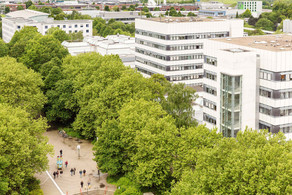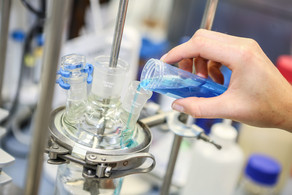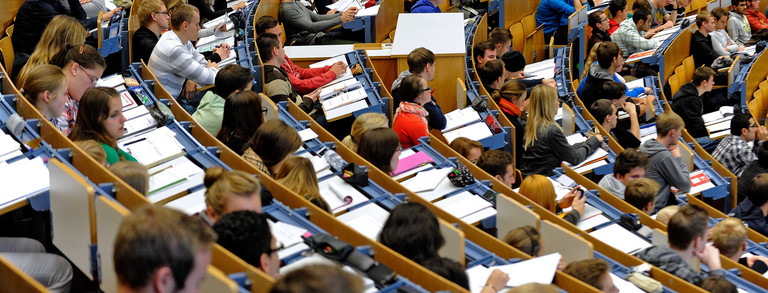Chemische Technik 2
| Type | Lecture (2 SWS) + Exercise (1 SWS) |
| Credits | 4 |
| Rhythm | Winter Semester |
| Bachelor / Master | Master |
| Audience | CIW, BIW, PSE, CCB |
| Language | German |
| LSF number (VL) | 065035/065036 |
| LSF number (P) | 065037 |
| Moodle Room |
Please refer to the LSF for the most recent information.
Course Content
In this course, the principles of environmentally friendly, "green" process development are conveyed. There are important general principles to consider when designing a chemical process. Emphasis will be placed on reactant availability, by-product toxicity, solvent and catalyst reusability, and process scale-up in miniplants. A number of so-called "green" solvents are discussed with their advantages and disadvantages. The various concepts and methods for recycling homogeneous transition metal catalysts are presented in detail. Furthermore, the industrial use of renewable raw materials and of CO2 with the corresponding conversion processes is discussed, as well as their potential for future uses. This lecture builds on the lecture "Chemische Technik 1" from the Bachelor's program and deepens the fundamentals presented there. Thus, this course is an important link between industrial chemistry and process engineering for chemical engineering students.
Aquired competences
The students will be able to:
- List the principles of "green" chemistry and explain them by means of examples
- Classify the problems of waste, waste water, safety and incidents for process development and describe the corresponding requirements
- Evaluate the various aspects of so-called "green" solvents and weigh them against each other
- List various methods of catalyst recycling and explain their principles
- Develop proposals for a process concept for a given chemical reaction and compare them with each other
- The various aspects of so-called "green" solvents can be evaluated and weighed against each other
- Various methods of catalyst recycling can be listed and their principles explained and compared
- Proposals for a process concept for a given chemical reaction can be developed
- Solutions for economic and ecological problems of chemical processes can be developed
- Industrial uses of renewable raw materials can be listed
- Describe conversion processes for the material use of important renewable raw materials to the corresponding products
- Evaluate conversion processes for their environmental compatibility
- Name important types of heterogeneous catalysts
- Describe their production and define areas of application
- Explain the term "tandem catalysis" and demonstrate it with examples
Further Details
| Exam | Written - 120 min |
| Preliminaries | - |
| Literature | M. Baerns, A. Behr, A. Brehm, J. Gmehling, K.-O. Hinrichsen, H. Hofmann, U. Onken, R. Palkovits, A. Renken: Technische Chemie, Wiley-VCH, 2. Aufl. 2013. The slides of the course and any additional materials such as literature lists and website recommendations will be published in the virtual workrooms in Moodle provided for this purpose. Details will be announced at the beginning of the course. |
Only the information found in the LSF and the most recent edition of the Modulhandbuch der Fakultät Bio- und Chemieingenieurwesen is binding. The content on this page may not reflect the most up-to-date information.





